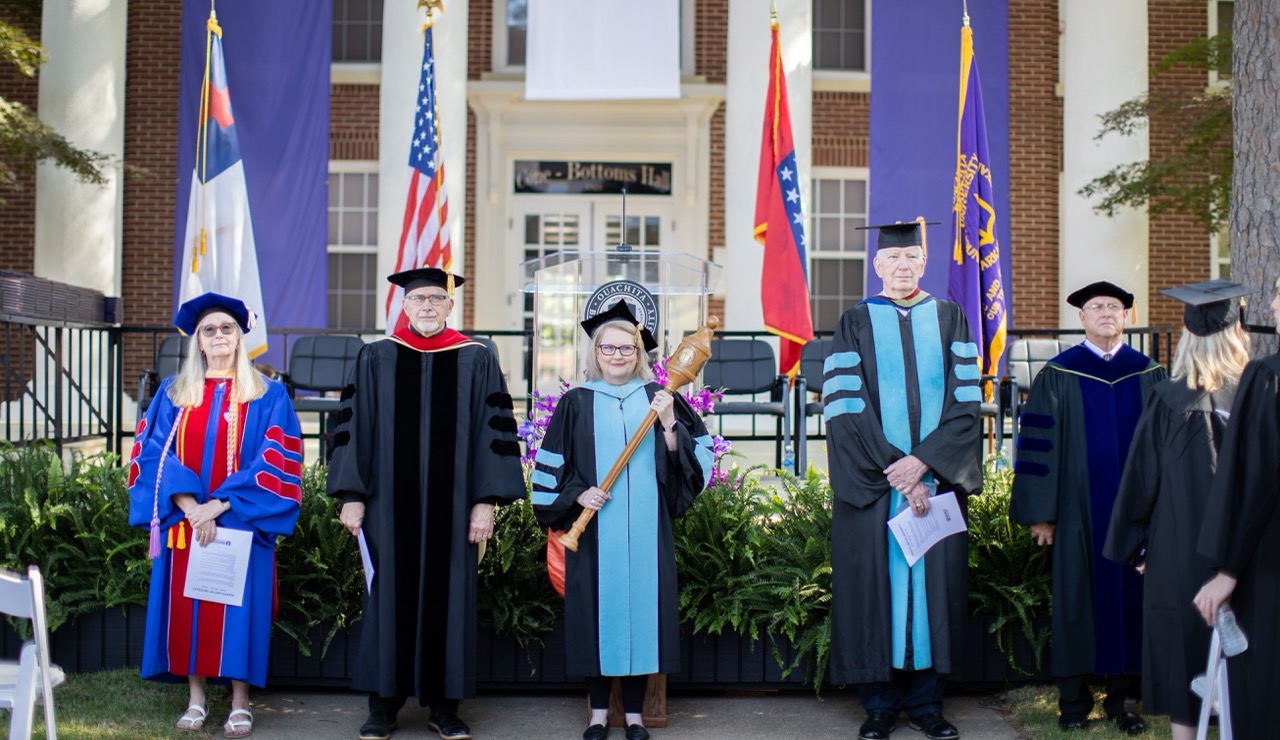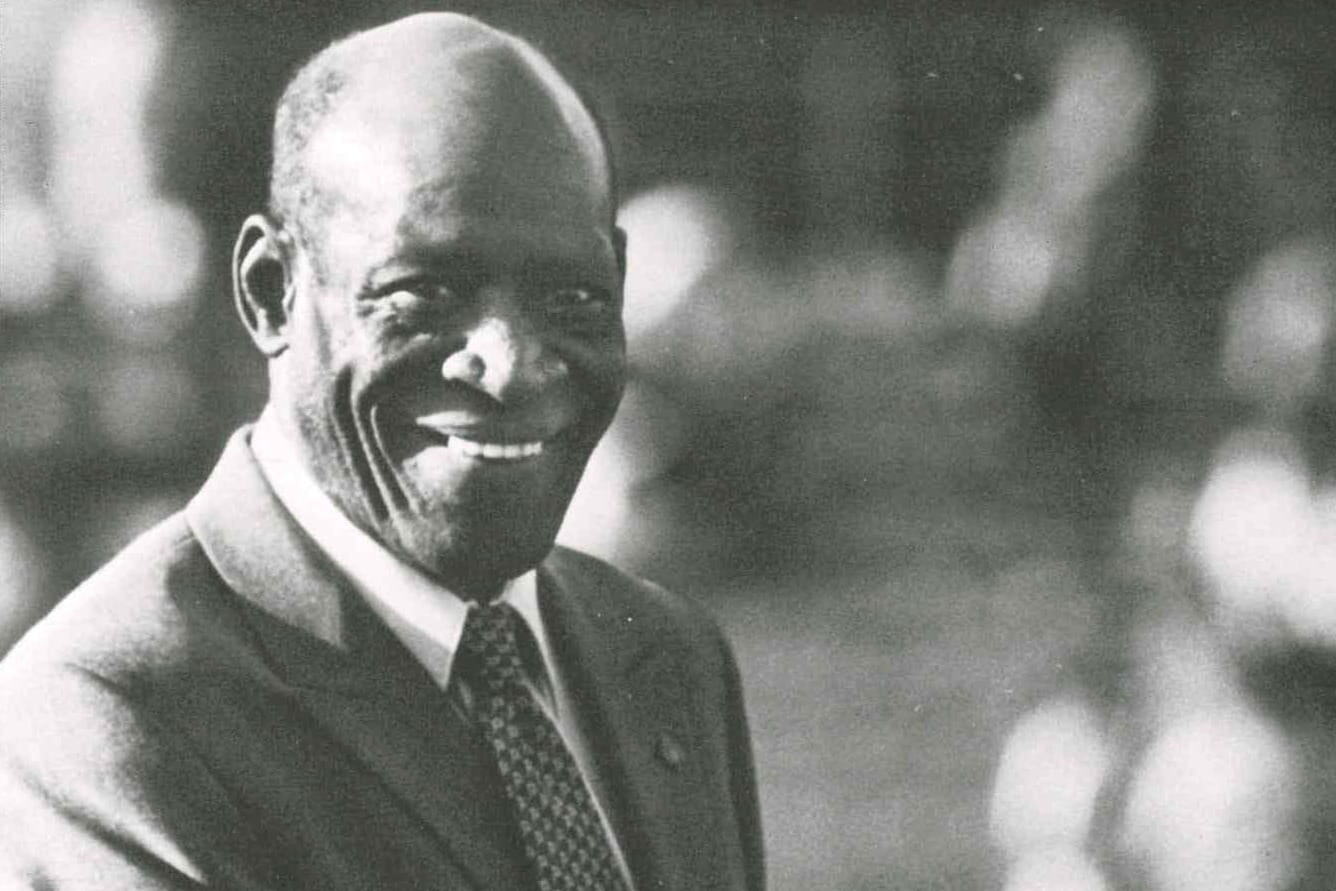In Memoriam of L.J. Brooks: Dr. Johnny Wink remembers his Latin student
 November 11, 2020
- Johnny Wink
November 11, 2020
- Johnny WinkIn my Latin class today we’ll be translating a text that always brings L.J. Brooks to mind. He was an OBU great, a profile in courage. An outdoor basketball court on campus is named for him. L.J. was one of those students of mine who make me glad to have plied my trade at OBU for lo these many years.
I should like you to know of this remarkable fellow if you don’t already. What you’ll find here is a letter I sent my Latin class in the fall of 2012 in the wake of L.J.’s death.
Dear Fellow Latinists,
This past Wednesday, L.J. Brooks came to Latin class, although he clearly wasn’t feeling well and had to leave the class on a couple of occasions.
Between now and Wednesday, L.J. developed a serious infection in connection with kidney woes he was having. This morning we at OBU got the grindingly bad news that L.J. had passed away.
L.J. Brooks was in his senior year at Ouachita. I had not known him before this August. The conduit for my getting to know him has been Latin, so now I have yet another reason to feel immensely grateful for the presence of that language in my life. It sponsored the brief but beautiful appearance to me of L.J. Brooks.
I was first charmed by L.J. that first day in class, when I was having students pronounce aloud words from our text.
L.J.’s set consisted of cogito, cogitare, cogitavi, and cogitatum.
It was love at first sound. L.J. said the words in a deep and rich tone, getting all the pronunciations correct and even observing the principle of duration on each word’s accented syllable.
L.J. next charmed me by requesting that his Latin name be that language’s equivalent of “A Beggar Telling Another Beggar Where Bread Is To Be Found.” I am unable to imagine a more Christopoetical name and happily christened L.J. “Mendicus Dicens Alteri Mendico Ubi Panis Inveniatur.”
I called L.J. “Mendicus” for short but have enjoyed sounding out the whole glorious name when I’ve called the roll.
I have lost count now of the number of subsequent charmings. Mendicus’s sweetness of spirit, his wit, his lovely smile, his wonderful way with the intoning of Latin, the pleasure he and Nascor Pulvis habitually gave me in their joint recitations of the sermones: these things teem in my memory and in my eyes.
Mendicus didn’t feel like coming to class on Wednesday, but he came.
And that day, Mendicus having made his brave and difficult way to class, with courage, with patience, we translated a portion of a letter from Pliny the Younger to Marcellinus:
Salve, Marcelline! Haec tibi scribo de Fundano, amico nostro, quod is filiam caram
et bellam amisit. Illa puella non
XIII annos vixerat, sed natura ei multam sapientiam dederat. Matrem patremque, fratrem
sororemque, nos et alios
amicos magistros magistrasque semper amabat, et nos eam amabamus laudabamusque. Medici
eam adiuvare non
poterant. Quoniam illa autem magnos animos habuit, morbum nimis malum cum patientia
toleravit. Nunc, mi
amice, mitte Fundano nostro litteras de fortuna acerba filiae eius. Vale.
Hello, Marcellinus! I am writing to you certain things concerning Fundanus, our friend,
because he has lost his dear and
beautiful daughter. The girl hadn’t lived quite thirteen years, but nature had given
her much wisdom. She always loved
her mother and father, her brother and sister, us and other friends, her he-teachers
and she-teachers, and we loved and
lauded her. The doctors weren’t able to help her. However, because she had great courage,
she endured her excessively
bad disease with patience. Now, my friend, send to our Fundans a letter concerning
the bitter lot of his daughter. Farewell.
The funerary urn of this beloved girl was found in the family’s tomb outside of Rome. Here is the epitaph on it:
D(is) M(anibus) Miniciae Marcellae Fundani f(iliae); v(ixit) a(nnos) XII m(enses) XI d(ies) VII
To the guardian spirits of Minicia Marcella, daughter of Fundanus; she lived twelve years, eleven months, seven days.
A Roman girl, a lad from Houston, both immensely beloved by their various communities. One’s been gone from this Vale of Tears for two-thousand years, the other departed this day. Senex est hodie valde tristis. And Senex is far from the only one.
Maximo cum dolore,
Senex
By Dr. Johnny Wink, Betty Burton Peck Professor of English
You Also Might Like
Ouachita reports Spring '26 enrollment, led by 50% increase in graduate students
February 11, 2026Recent
Ouachita reports Spring '26 enrollment, led by 50% increase in graduate students
February 11, 2026




